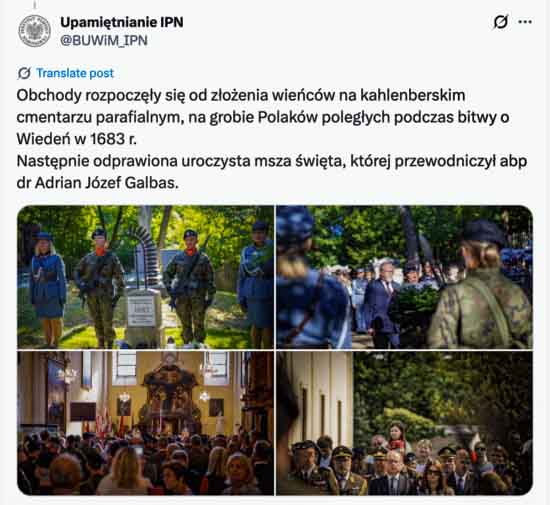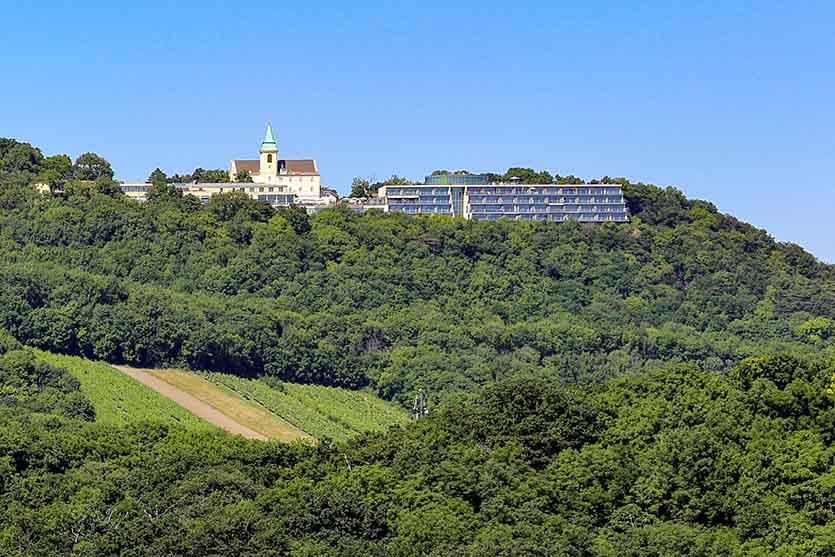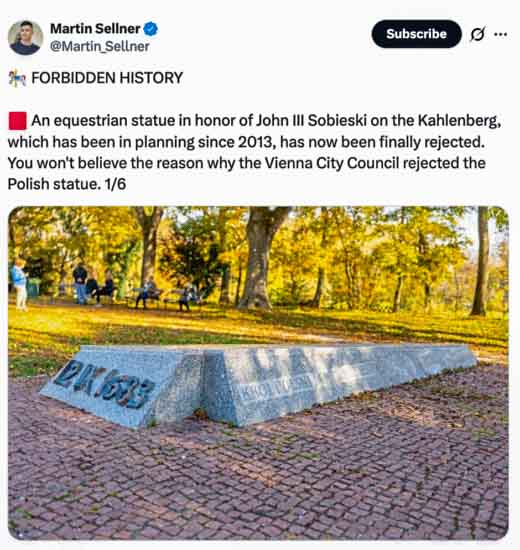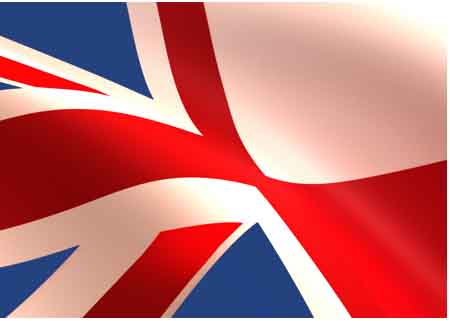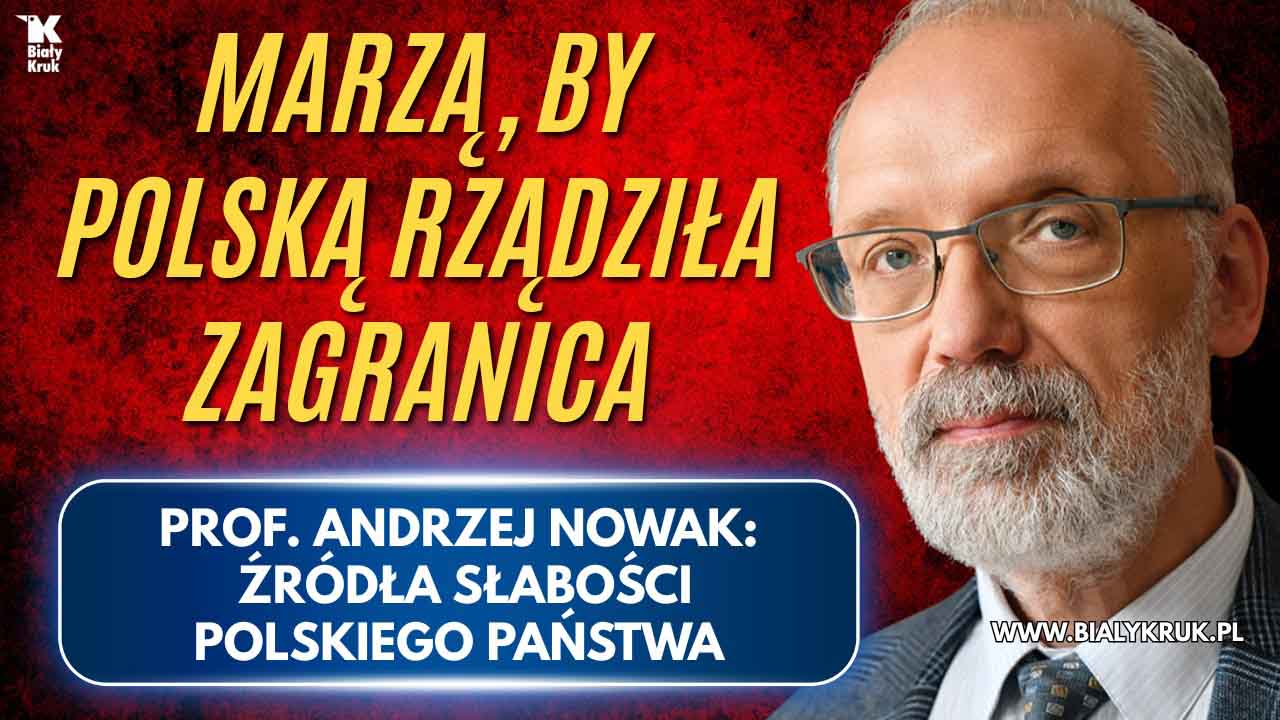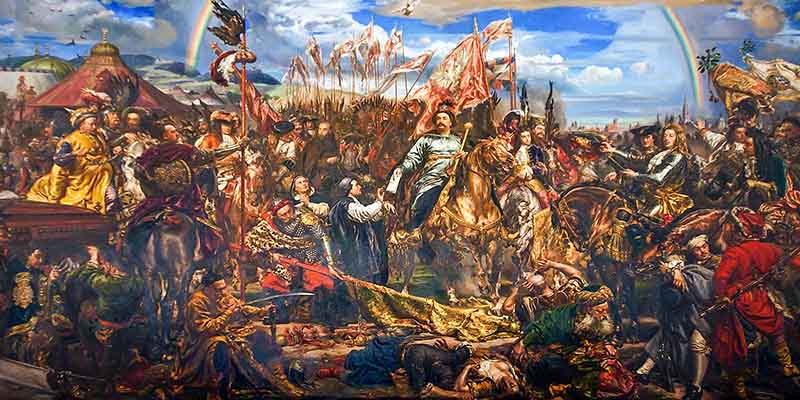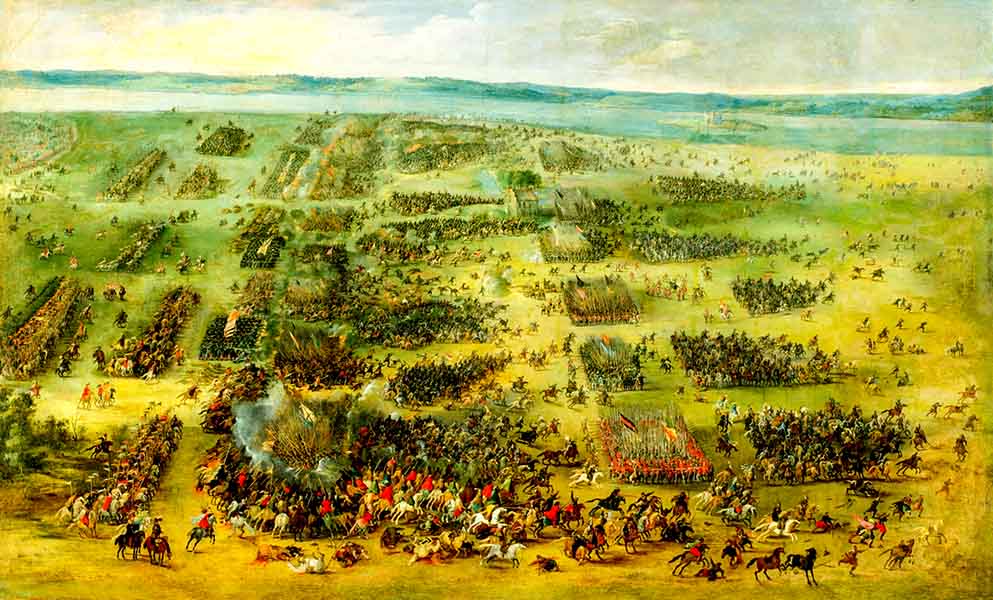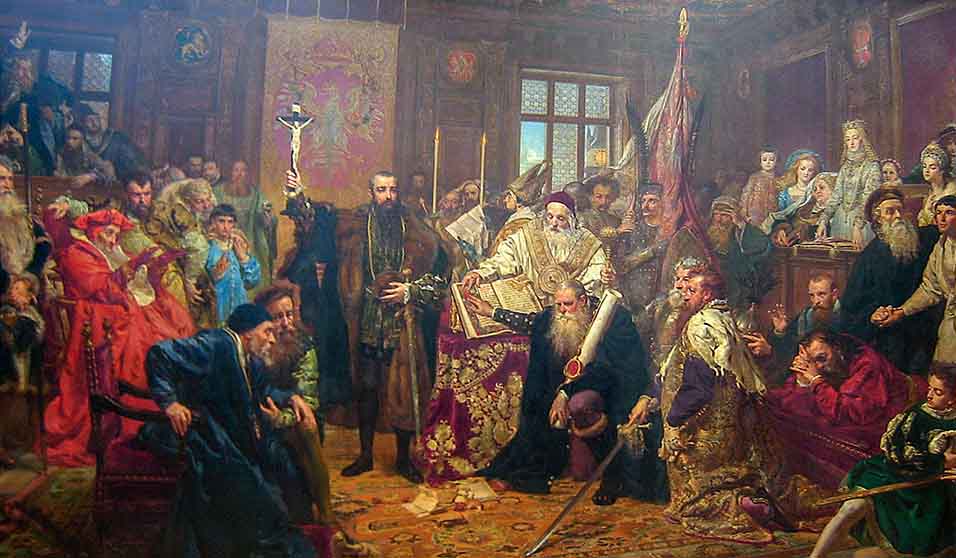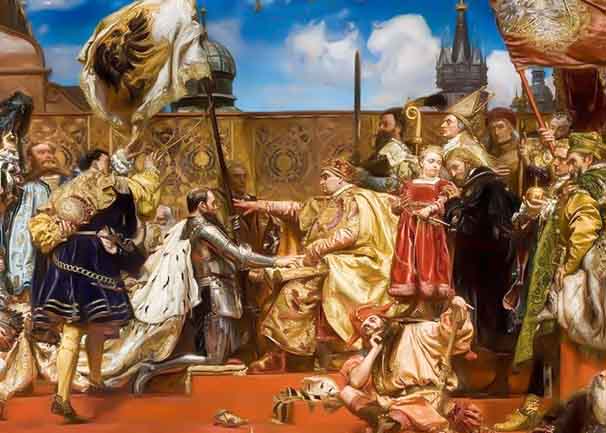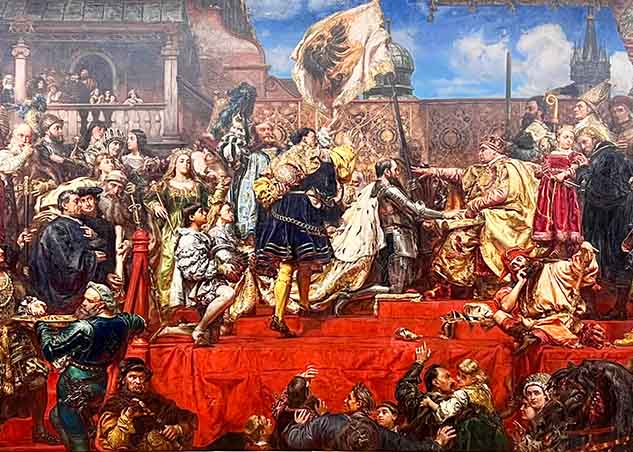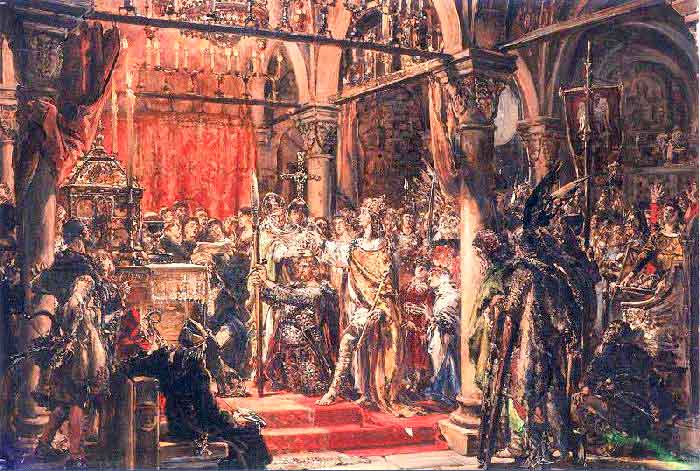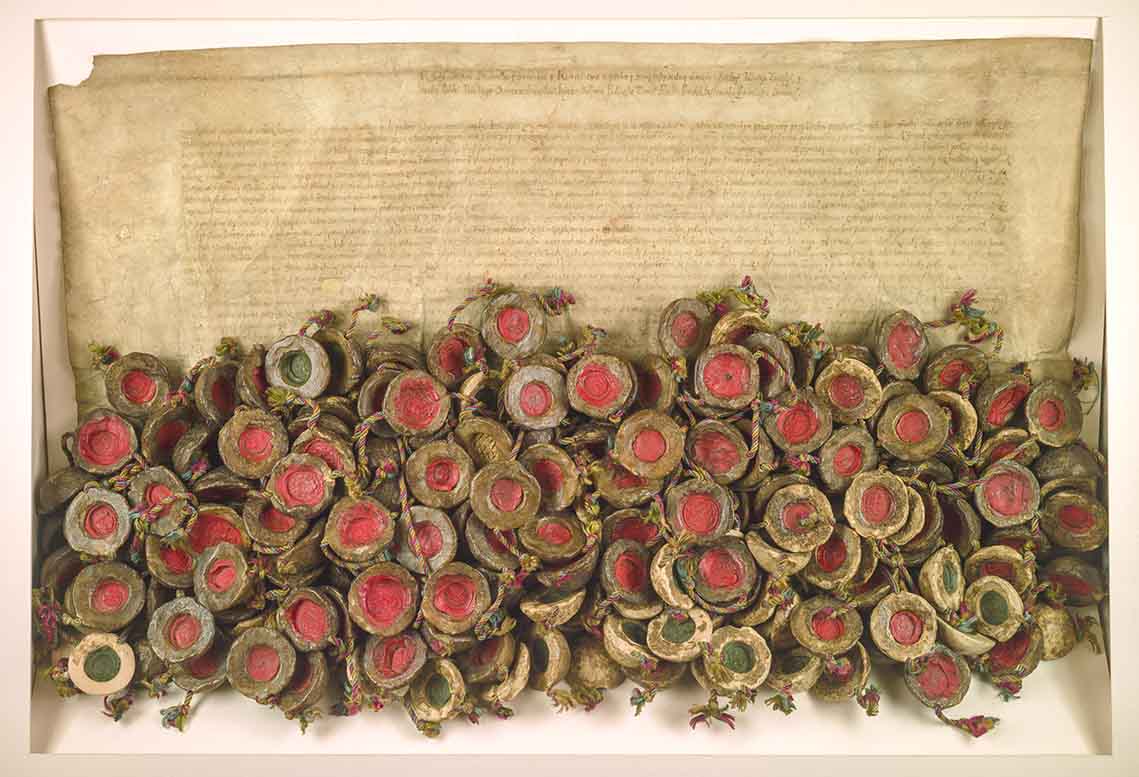On the 342nd anniversary of the victorious Relief of Vienna, we interviewed Father Roman Krekora CR, rector of the Polish National Sanctuary on Kahlenberg in Vienna. It was from this site that King John III Sobieski set out on September 12, 1683, to lead the Allied forces to the victorious Battle of Vienna.
Today, the Polish National Sanctuary is located on this hill, where the memory of the power of the Polish army and the ruler who saved Christian Europe is cultivated.
British Poles: What are the Battle of Vienna anniversary celebrations like this year?
Father Roman Krekora: The anniversary celebrations have been underway since Sunday [September 7, 2025 – ed.]. We always organize them on the Sunday before September 12, because that's when most people have the opportunity to participate and celebrate. It's much more difficult during the week.
At 9:00 AM, candles are lit at a special cemetery, at the monument to fallen soldiers. Soldiers from the 11th Armored Cavalry Division named after King Jan Sobieski from Żagań participate in the event, and a salute of honor is also offered. Numerous guests from Poland, including government officials and politicians, attend every year. A solemn Mass begins at 10:00 AM, followed by a roll call of the fallen, also with a salute of honor. This is followed by a scheduled artistic program.
Kahlenberg Hill (Source: Wikipedia)
This year, the program has been expanded. Today, the Kahlenberg branch of the University of Budapest will host a symposium on the significance of the Battle of Vienna for the fate of Europe. It will run from 3:00 PM to 8:00 PM.
The focal point of the celebrations remains the Holy Mass. The Battle of Vienna is a moment often erased from Polish memory, particularly during the partitions and the German occupation and communism, when deliberate efforts were made to erase the memory of Polish successes.
Many times, Polish soldiers fought under orders from other – foreign – commanders, and Polish national interests were not always taken into account. This situation was different: the Polish king commanded the entire Allied army. This is unique in the history of our nation.
On this occasion, we also recall the heroism of figures like General Maczek – he saved numerous European cities, and after the war was forced to work as a bartender in Scotland. Poles were not even allowed to participate in the victory parade in London. They were forced to disperse around the world, often to distant colonies, because they could not find work in England itself.
Kahlenberg demonstrates that Poland was capable of leading a coalition: we commanded not only our own soldiers but also the armies of the Habsburgs, Saxons, and other allies. It was the Polish king who saved Europe. Had the battle's outcome been different, Vienna might have shared the fate of Constantinople, and our civilization would have taken a completely different shape—not European, but Turkish or Arab. That's why we call those events truly Poland's five minutes of greatness in the history of Christianity, Europe, and the world.
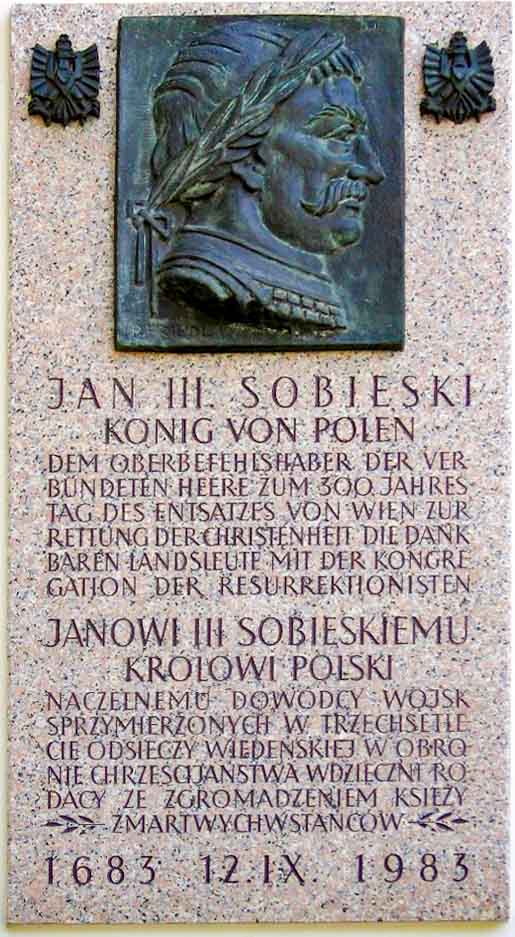
A commemorative plaque on the Kahlenberg sanctuary. "To John II Sobieski, King of Poland, Commander-in-Chief of the Allied Forces, on the 300th anniversary of the Battle of Vienna in defense of Christianity, our grateful compatriots and the congregation of Resurrectionist priests." (Source: Wikipedia)
BP: How do Austrians approach this holiday?
RK: There's a lot of interest. However, Austria is a country that pursues the principles of an open society. For historical reasons, Austrians don't possess a sense of patriotism analogous to that of Poles, meaning a sense of attachment to their homeland that includes respect for other nations—this is something that has been shaped in us by the tradition of the Polish-Lithuanian Commonwealth.
It's important to remember, however, that the topic has been a difficult one in Austrian historical memory. On the one hand, there was a tradition of pride in the defense of Vienna; on the other, in the 20th century, the country experienced both Nazism and communism, which relegated Christian values to the margins. Today, September 12th exists in the Austrian consciousness as a celebration of the Vienna garrison and a part of local tradition.
Since 2013, I have been rector of the Kahlenberg shrine. During the anniversary celebrations, this place brings together people from all over Europe, including the former Polish-Lithuanian Commonwealth, from Estonia to Moldova. Before the battle, Father Marco d'Aviano, an Italian, celebrated Mass here, and his memory is still vivid. Ukrainians also come here every year, sometimes even a dozen military attachés. Politicians of all stripes—from left to right—participate in the commemorations, treating them as a pan-European event.
The sanctuary houses a plaque dedicated to Father Marco. The church is often filled with soldiers and politicians. The 11th Armored Division regularly participates, following Sobieski's tradition. The Polish land forces also celebrate their anniversary on September 12th. Military support is therefore present, and even—as recently—a hundred highlanders from Poland. Since 2014, the celebrations on Kahlenberg have become pan-European.
BP: Do you think there will be a breakthrough regarding the monument to John III Sobieski?
RK: It's a simple matter, yet it's been artificially complicated. Many monuments could be erected, but what's more important is the commitment to maintaining what already exists. The Kahlenberg sanctuary is supported solely by donations from the faithful. Any other nation, given such a monument, would invest in its development. We have a fantastic story to tell, a beautiful location, but the potential isn't fully utilized. Meanwhile, only the parish priest, who runs two other parishes, is dealing with this. The Ministry of Foreign Affairs, the ministries of culture, and the ministries of education show little interest.
A monument to King Sobieski already stands in the church. The Austrians, if they wish, can erect more, but Poles should primarily take care of what we have now. History, however, is interpreted differently here. For Poles, Sobieski came not so much to save the emperor, whom he supposedly personally disliked, but to defend Europe, Christendom, and secure Kraków from a future Turkish threat. In the Austrian narrative, however, for centuries, Sobieski's role was minimized, emphasizing only the emperor's importance.
Today, historians in Austria often argue that the Polish participation in the battle was marginal. We strive to emphasize the true scale of the victory and the Polish leadership. That's why it's so important to invite representatives of various nations and present Sobieski's contribution in a pan-European context.
The monument itself isn't the most important thing. What's more important is harnessing Kahlenberg's potential and engaging the Polish state in this endeavor. If this site is fully developed, there will be room for additional monuments in the future.
The British Poles portal reported on the Jan Sobieski monument in the text: Vienna authorities say “final no” to Jan III Sobieski's memorial.
BP: Finally – are there any investments planned in the sanctuary itself?
RK: Yes, a major renovation will begin next week. We are counting on the generosity of Poles to maintain and develop this unique place of remembrance. I sincerely encourage all Poles and people of good will to support this initiative with prayer and financial donations. This church is a symbol of a victorious Poland and is worth caring for. It is also a reference to our recent history – its floor and pews were soaked with the tears of Poles fleeing the communist dictatorship in the 1980s. Together, we can ensure the representative appearance of this beautiful place.
If you would like to support the ongoing renovation of the Polish National Sanctuary on Kahlenberg, we encourage you to make a donation. Detailed instructions can be found on the sanctuary's website: https://kahlenberg-kirche.at/
Our interlocutor was the rector of the national sanctuary on Kahlenberg – Father Roman Krekora CR.
Interview conducted by editor Tomasz Modrzejewski.
Translation from Polish by Andrew Wozniewicz.



